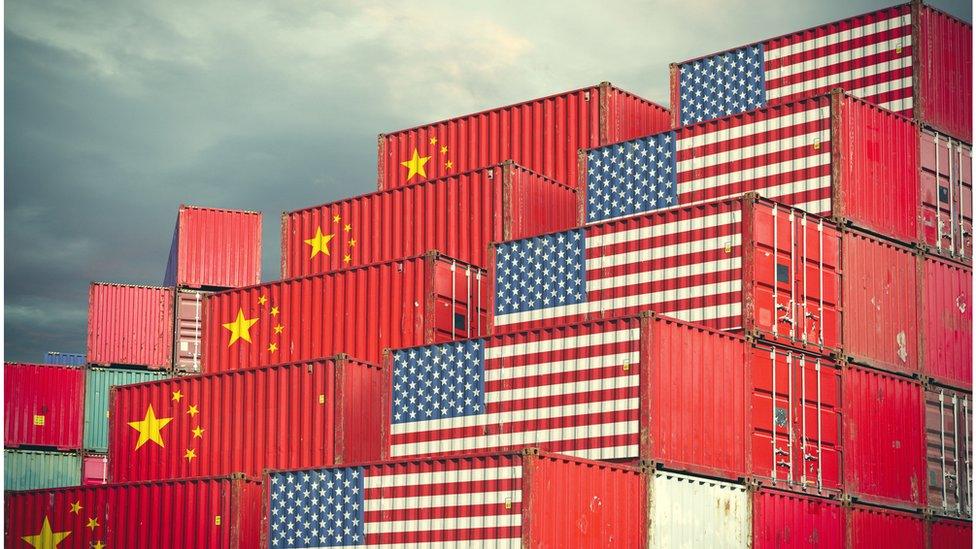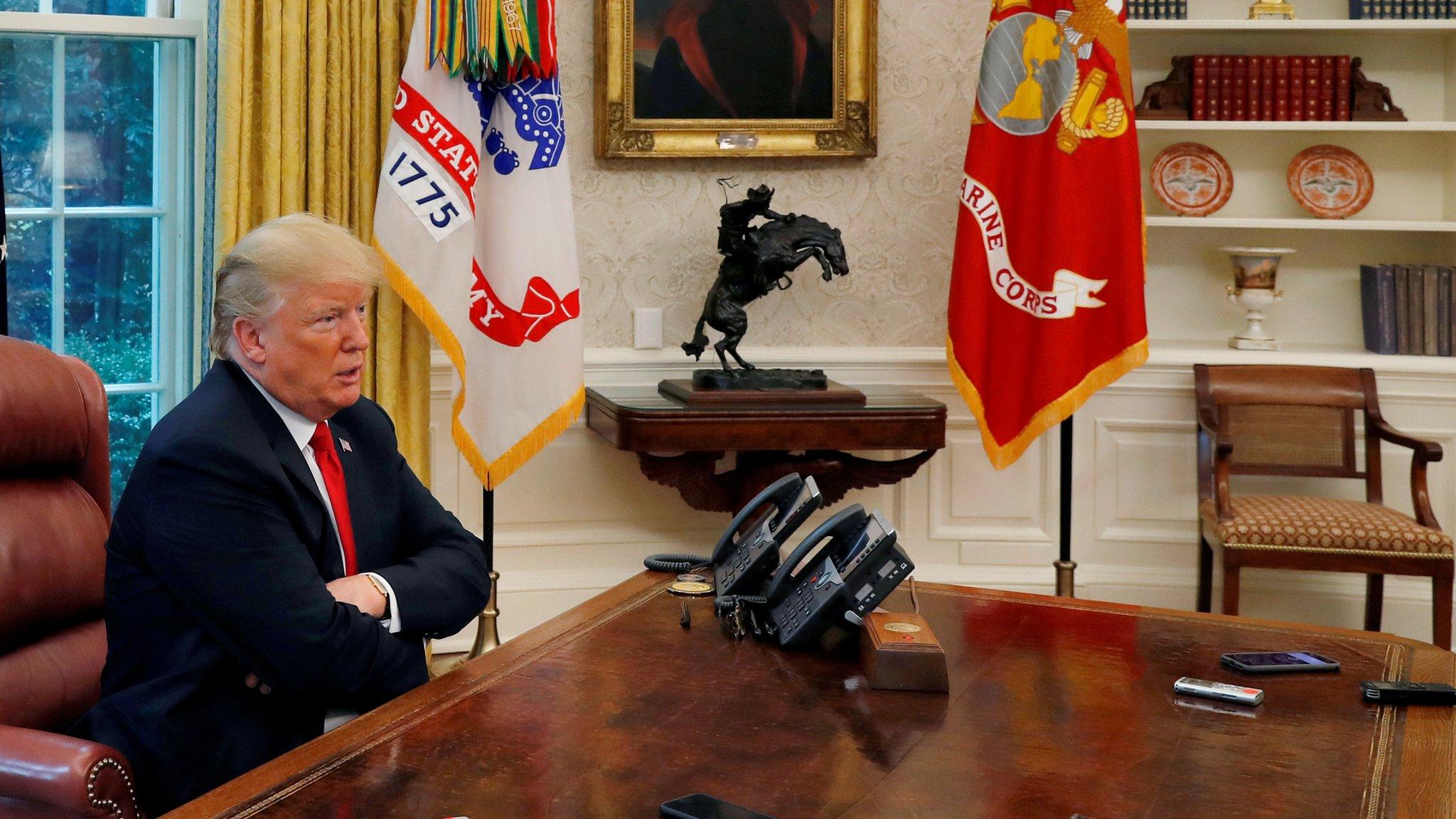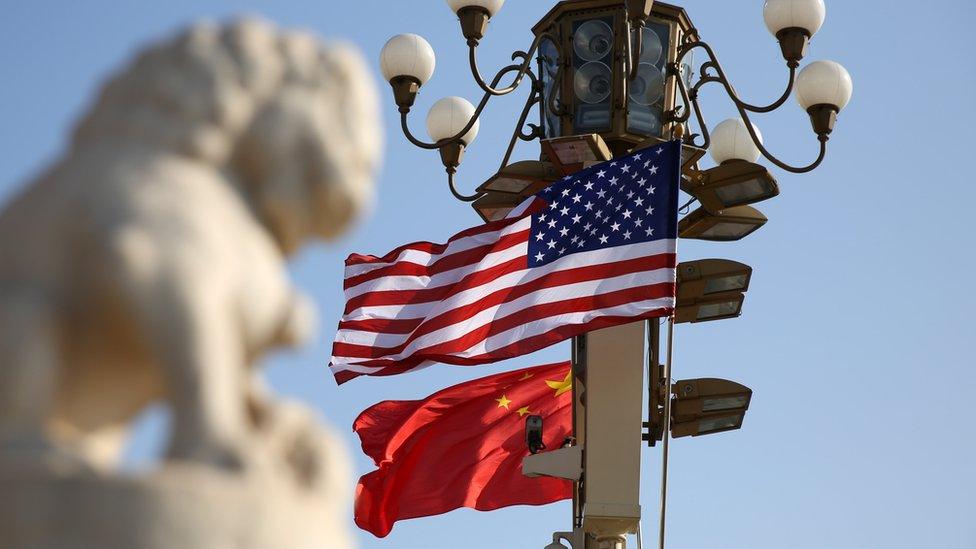US shies away from calling China a currency manipulator
- Published

The latest raft of trade tariffs imposed by the US and China have come into effect
The United States has refrained from labelling China a "currency manipulator" in a move which may help defuse escalating tension over trade between the two countries.
President Donald Trump has previously accused China of keeping its currency weak to make exports more competitive.
Speculation that the US Treasury would make that claim formally this week has not been borne out, however.
China's policies were still of "particular concern" the Treasury said.
Beijing's lack of transparency and the recent weakness of the yuan continued to pose major challenges to achieving "more balanced trade", Treasury Secretary Steven Mnuchin said in a twice-yearly report on the foreign exchange policies of major US trading partners.
However, the Treasury did not find that China was directly intervening to undermine the currency's value.
The yuan fell to its lowest level against the dollar since January 2017 following the report.
President Trump argues the growth in Chinese exports to the US has destroyed American jobs. He has ordered tariffs on more than $250bn of Chinese exports to try to stem the US's growing deficit with China.
On the campaign trail and again this summer, he claimed China was pursuing a deliberate policy of keeping the value of the yuan low. The US dollar has strengthened against the yuan in recent months, prompting speculation that this month's report might contain formal claims of manipulation.
However at meetings of the International Monetary Fund in Bali, Indonesia last week, China's central bank governor Yi Gang said that Beijing would not engage in "competitive devaluation" or use the exchange rate as a "tool to deal with trade frictions".
The US Treasury report also said it has was keeping India, Japan, Germany, South Korea and Switzerland on a monitoring list for extra scrutiny.
- Published21 August 2018

- Published19 September 2018
